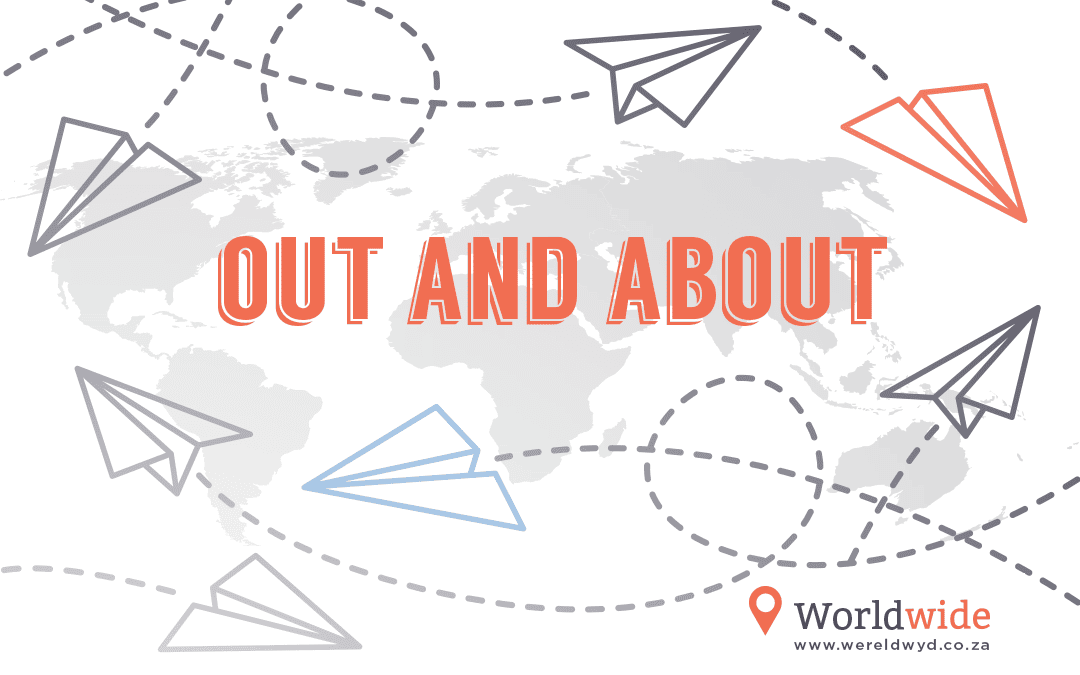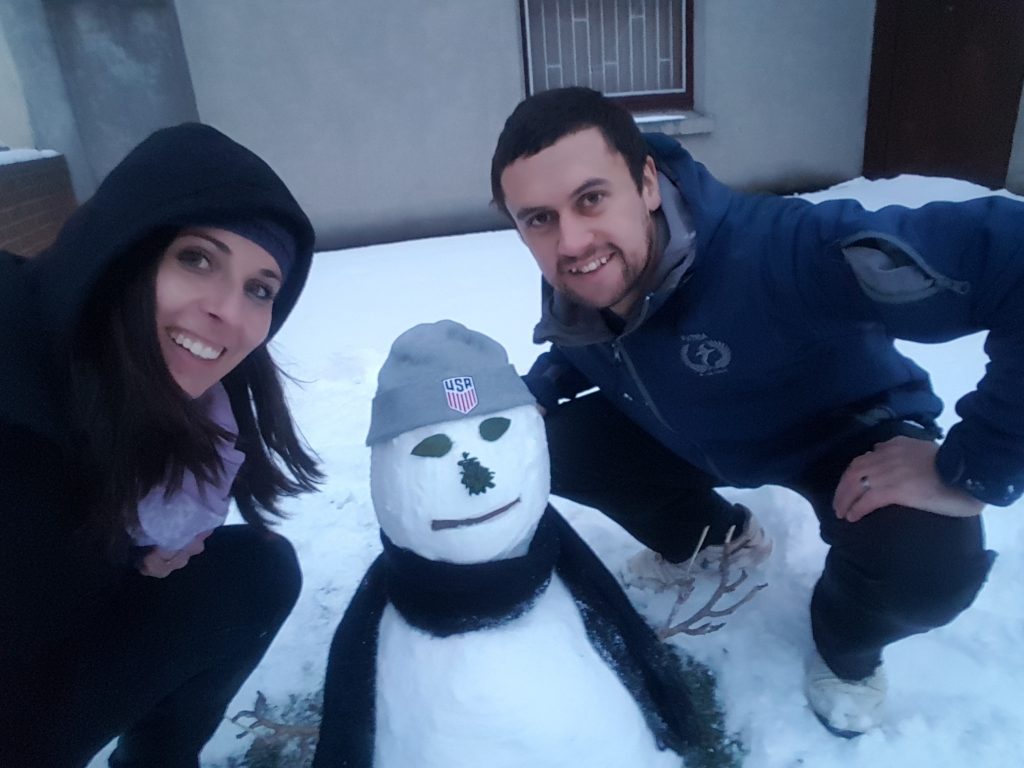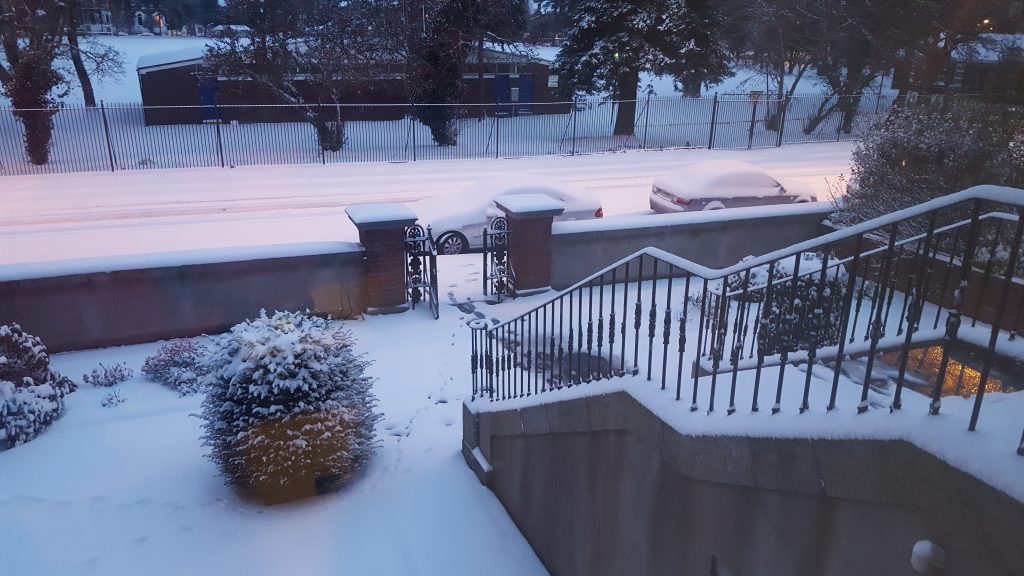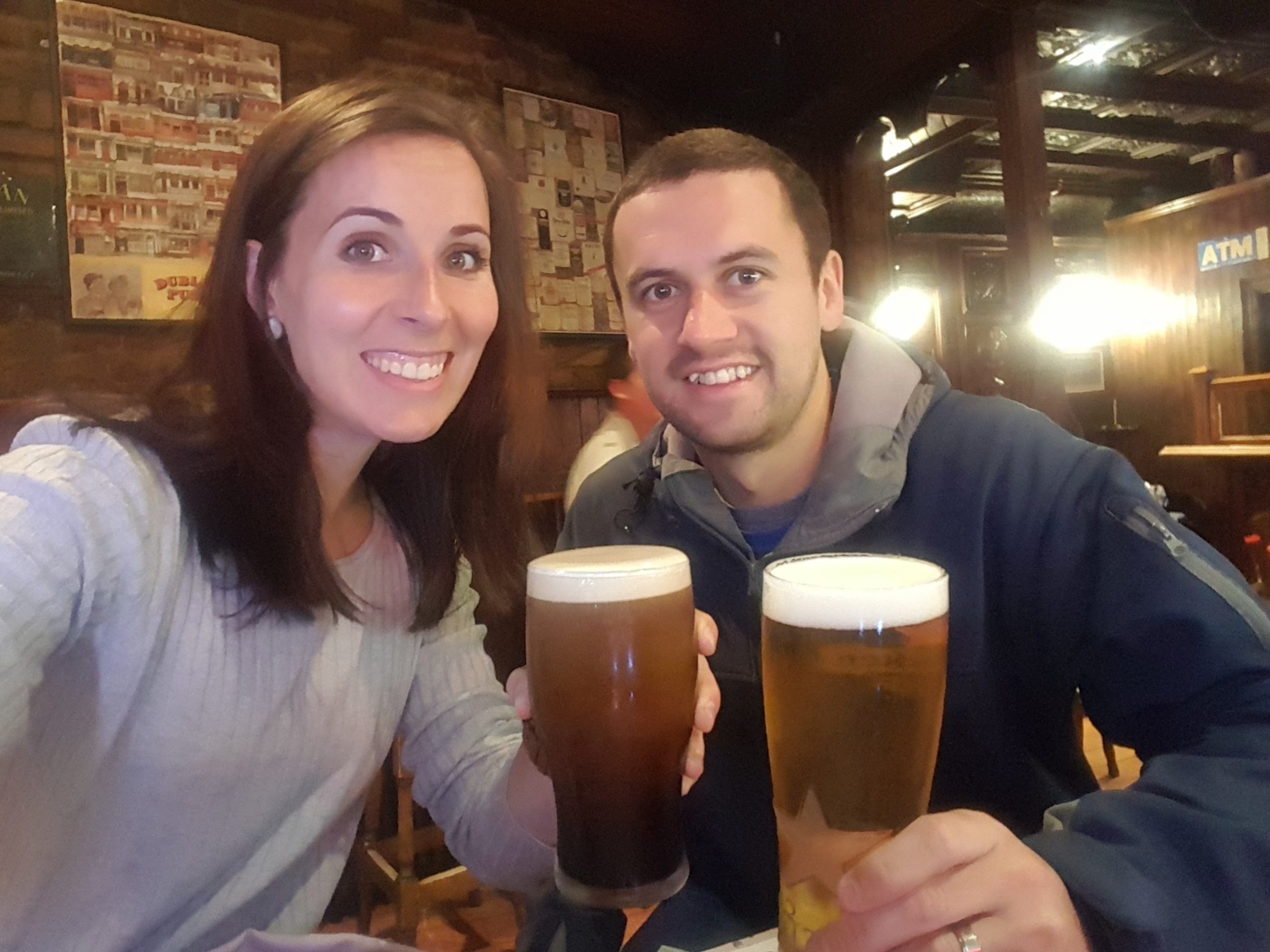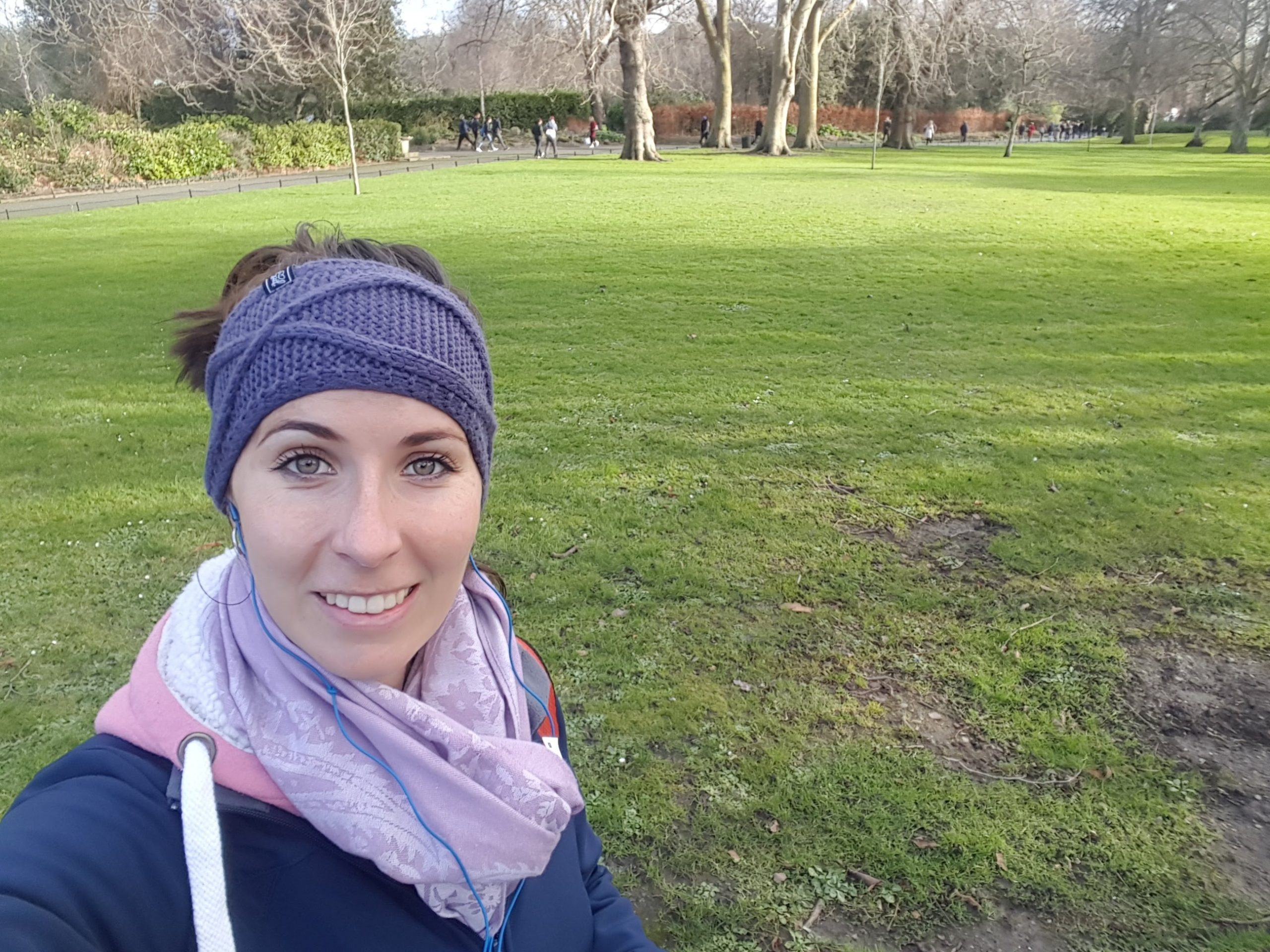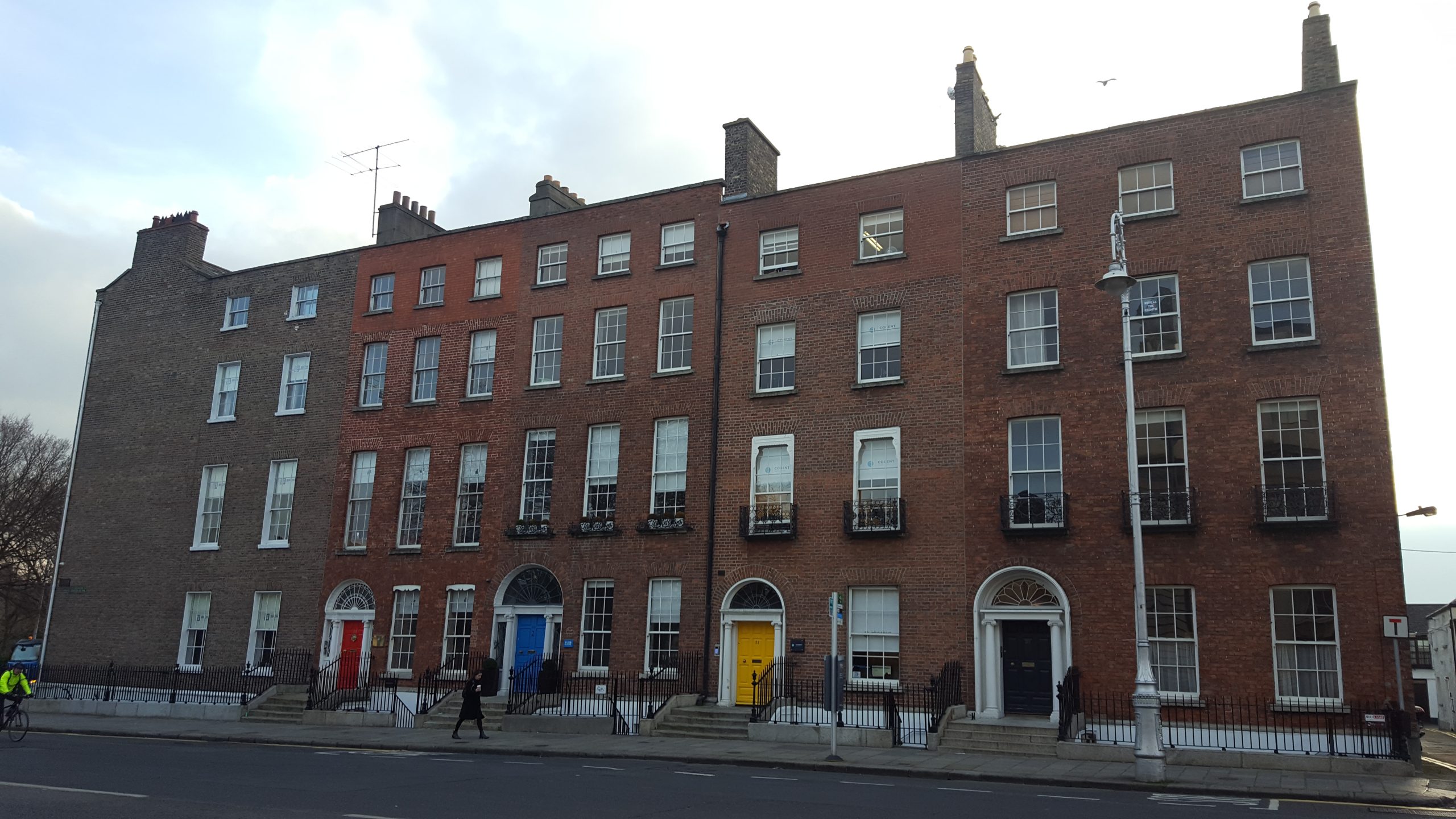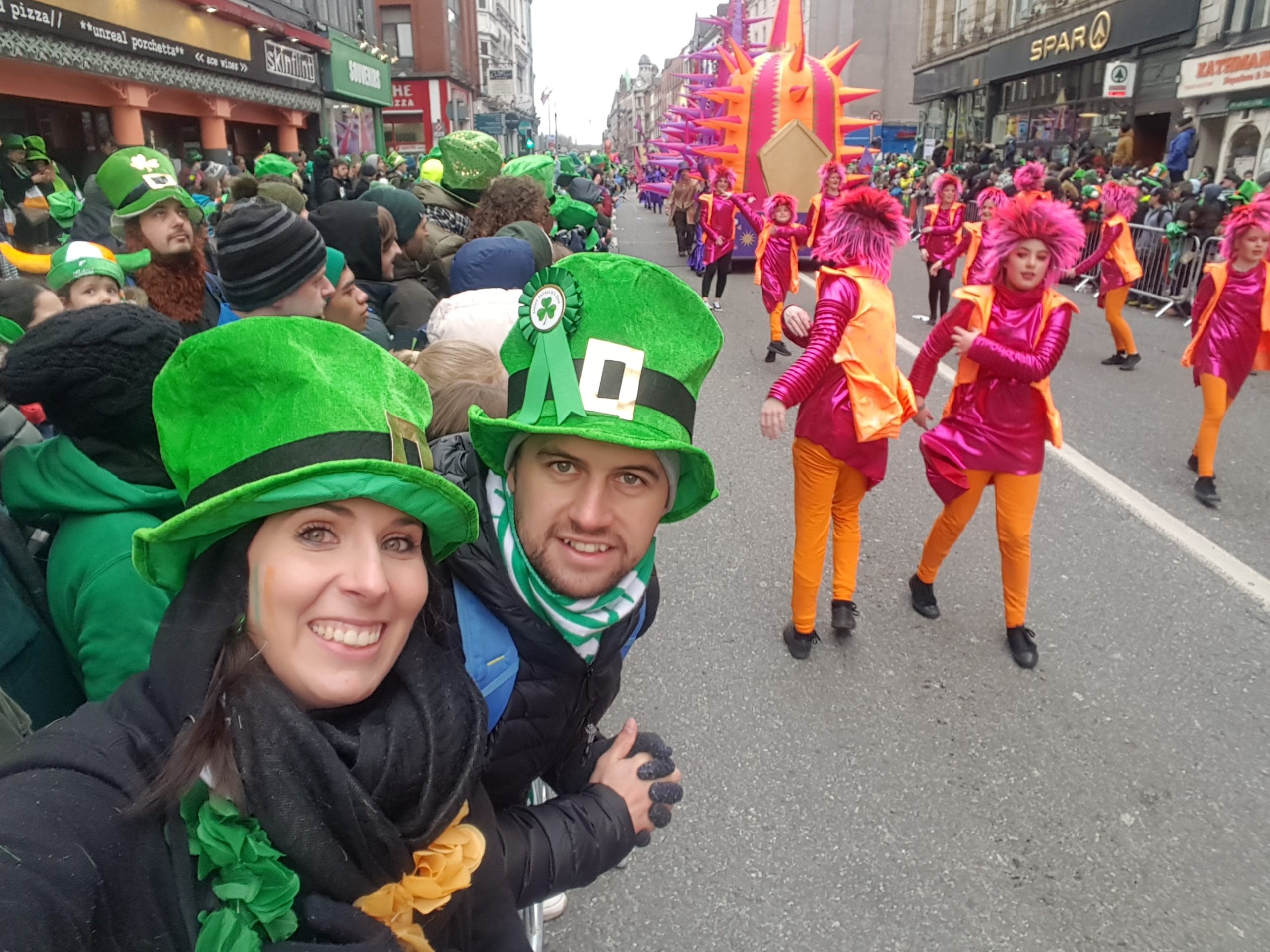Out and About is a column where we talk to people currently living abroad, or who have previously lived and worked abroad. This week we chat to Elsje du Toit who lives in Dublin, Ireland.
Tell us about yourself and where you live.
Me and my husband J.J. grew up in small towns: me on a farm near Petrusville in the Northern Cape, and he in Ladybrand in the Eastern Free State. We met at the North-West University (NWU) in Potchefstroom. After studying, we went to Bloemfontein where I was a reporter at Volksblad and Netwerk24, and he was a chartered accountant at EY. We lived there for five years.
Last October, friends of ours who have been living in Dublin for almost two years, contacted us: EY Ireland was looking for people to work for them. Because we would like to see the world, we decided that J.J. should apply. By the end of November last year, after many Skype interviews and calls, he heard that he got the job in Dublin and that he had to start working before the end of January 2018. We hurriedly resigned from our jobs, packed up our entire life and locked it up in a small storeroom. We greeted all our loved ones and friends with great sadness and boarded the plane with only four bags because Europe was waiting.
Was it difficult to adapt to Ireland?
I think it was much harder for me than it was for J.J.. He immediately started working, got into a routine and easily adapted to the Irish society. For someone like me who loves the sun and hot weather, it was harder. It was very difficult for me to realise that I had given up my entire career in South Africa and had to start from scratch again in Ireland. I had to build a reputation and portfolio from scratch – in English! But fortunately, my husband’s support helped me through the difficult first few weeks. I won an internship at a pregnancy magazine that eventually led to a permanent job.
The climate was hell in the beginning. We left a blistering South African summer and arrived here in the middle of winter. We survived snowstorms, such as Storm Emma and the Beast from the East, and built snowmen while our families in South Africa lied under air coolers. I missed the sun so badly. But fortunately, Ireland’s coldest winter of the past 30 years has been followed by the hottest summer, so I could wear my summer dresses and shorts.
Now, seven months later, we are settled in and things are going well. But sometimes I’m still fiercely longing for home for weeks on end.
Do you still speak Afrikaans?
Oh yes! J.J. and I speak Afrikaans only with each other, and our entire circle of friends here consists of South Africans. When we meet up, only Afrikaans is spoken. Fortunately, I also brought a lot of Afrikaans books to read. But at work and in the city, when we are dealing with the Irish, I speak my best Karoo English. The best part is that no one laughs at me! On the contrary, they compliment me on my beautiful Afrikaans accent.
There are many South Africans in Dublin. Do you sometimes meet up?
There are lots of South Africans here. I was surprised to find so many in one city. On our first Sunday at church, many people greeted us in Afrikaans and started talking to us. Our circle of friends consists of about 20 South Africans. Some of them are English speaking, but most of us are Afrikaans. We meet regularly. This past weekend, all of us went to Limerick by train to watch the Cheetahs against Munster in the Pro14 rugby competition. We were really looking forward to it!
What was the strangest to get used to?
To me, it was strangest to not answer when someone asks “How are ye?” (They say “ye”, not “you”.) In the beginning, I always replied that I was fine, and I even asked “And you?” But then I only got a confused expression. I quickly learned that it’s just the way the Irish greet; they are not really interested in how you are. And besides their heavy Irish accent, which is quite difficult to understand, they have funny quips that we do not always understand, such as “grand” (just fine or adequate, not magnificent) and “craic” (fun or news).
Do you still have contact with South Africa and will you ever come back?
We have a lot of contact with South Africa. All our friends and family are still there. I also have regular contact with my former colleagues. Thanks to Facebook and other social media platforms, the world is much smaller, and it is very easy to keep in touch with people abroad.
If we’re going back… It’s too early to say. We’ve been here for seven months only, and J.J.’s employment contract is valid for the next two and a half years. I still long for South Africa, but with Europe at our doorstep and the endless opportunities available here, it is difficult to answer the question with a quick “yes” or “no”. So, ask me again in about two or three years’ time.
Do you have time to travel?
The best is that you can quickly fly to Spain, Belgium, the Netherlands or any European country for a weekend, and it’s very cheap. Unfortunately, South Africans need a valid visa to visit all these countries, which is a hurdle that makes the road to Europe more challenging, but it can be done. That’s exactly why we came to Ireland. We are planning a lot of holidays in different countries.
What do you enjoy most about life in Dublin?
The fact that I can walk home or go to the shops in the middle of the night without fear; that our front door has only one lock and there are no burglar bars in front of our windows. None of the houses here has high walls or fences, and the children ride their bikes and play in the streets until late. I’m still alert – I think all South Africans are born alert – but I’m much more comfortable with a quick walk to the shops than I was in South Africa.
How does the living cost compare with that in South Africa?
Dublin is one of Europe’s most expensive cities, so the cost of living here is higher than in South Africa – especially in Bloemfontein. Groceries cost more or less the same if you convert the prices from euro to rand, but accommodation costs almost four times what we paid last year, and that is for a much smaller apartment. Going out or going to the movies is also much more expensive. Because we have been here for a couple of months only, we still often convert prices to rand. It can be shocking to pay €5 per day for lunch, or €10 for a regular bottle of shampoo. I keep reminding myself that we now earn euros and no longer rands.
What do you miss most about South Africa?
I am craving a braai, biltong and droëwors. I will literally do anything to get some. In South Africa, we had a braai every single weekend. Here, they only barbeque a bunch of patties, pork sausages and chicken kebabs – 20 minutes and the “braai” is over. I especially miss an entire evening with friends and family around the fire, the smoke in your hair and clothes, and the sizzling sound of a delicious lamb chop and boerewors on the grill.
Another thing I miss is the open space of the Free State. But I think it’s because I grew up on a farm. Here in Ireland, the houses are closely packed and the streets narrow.
What is the most important lesson you learned from the emigration process?
That you need much less to cope than you are used to. Here we don’t have a car, only two bicycles. In South Africa we each had a car with which we drove literally everywhere: even if the store was only a kilometre away, we drove there.
In my kitchen in South Africa, I had lots of pots, pans, cutlery, plates, glasses, sharp knives and cups. We could use a new pot or pan every time we cooked. Now I have one pot, one pan, four of each type of cutlery, a small fridge, a microwave oven, a stove, oven and kettle. We toast our bread under the oven’s element and only prepare food that can be cooked in a pot and pan, so we won’t have to do dishes all day long.
And be grateful for every second of sunshine. When you live here, you miss the gruelling South African summers.
Share on
Latest articles



